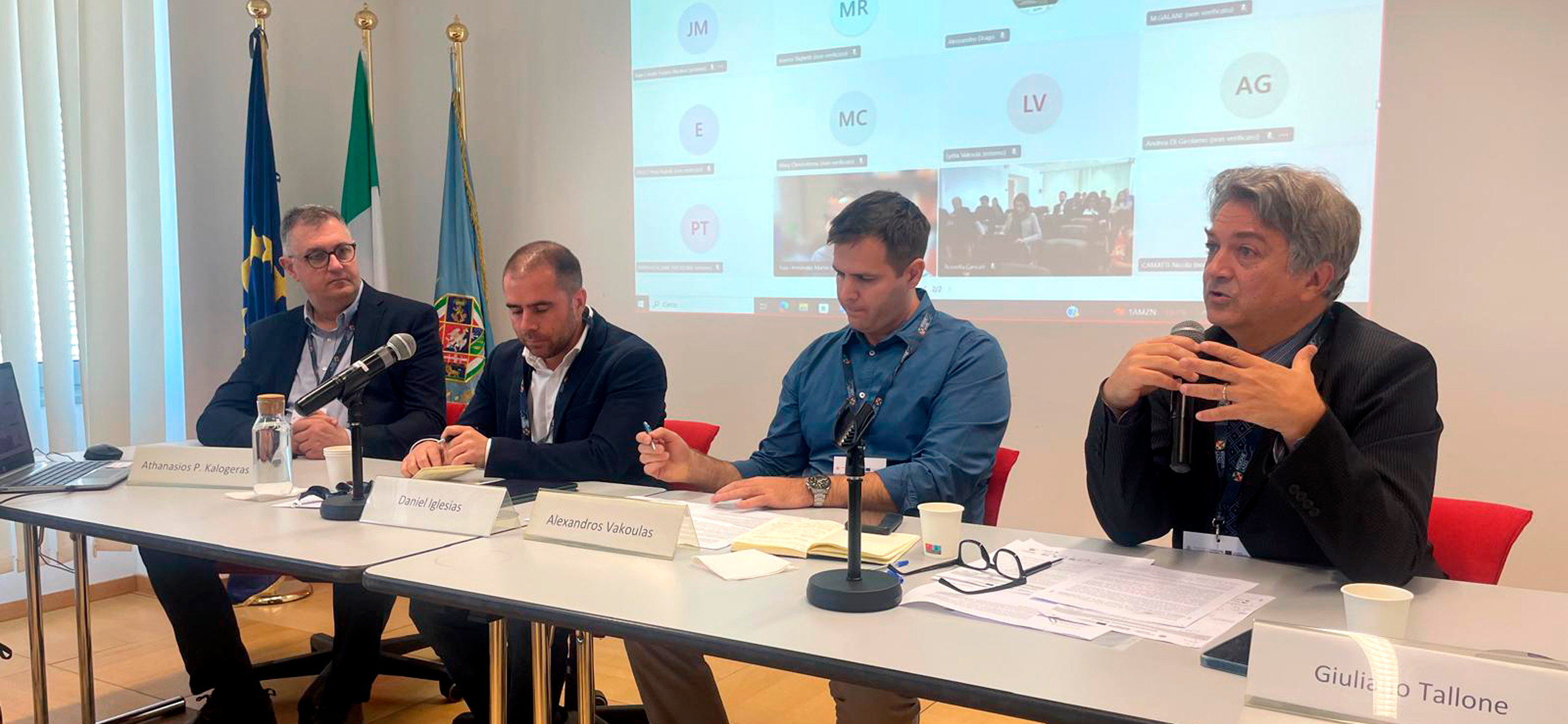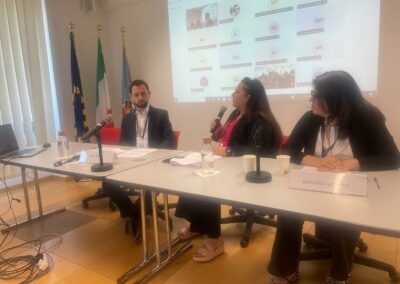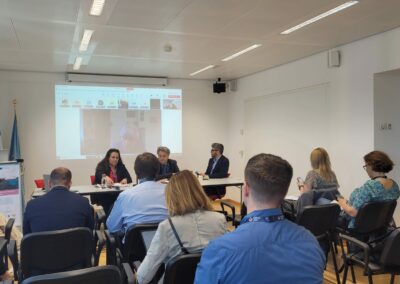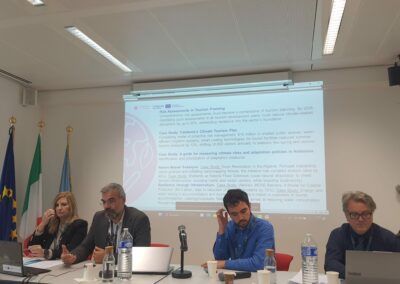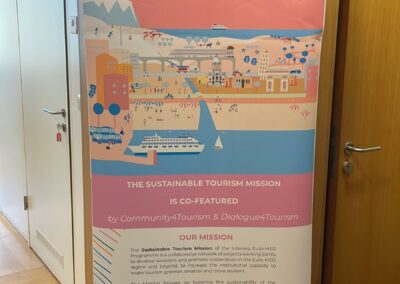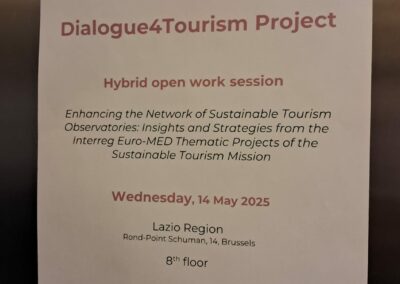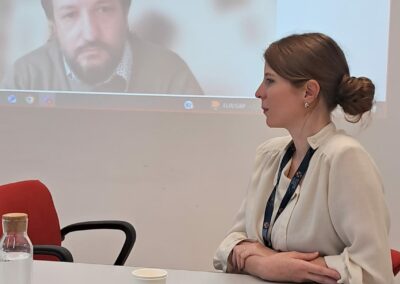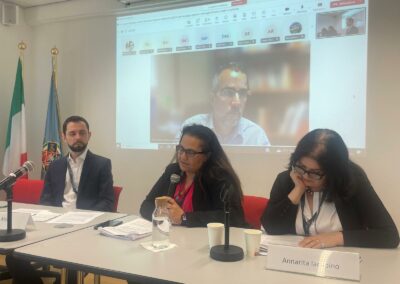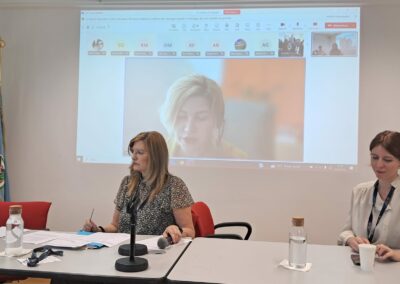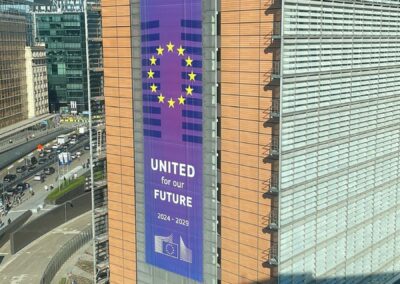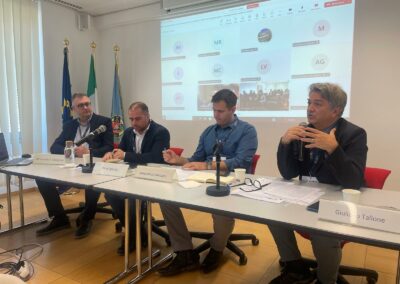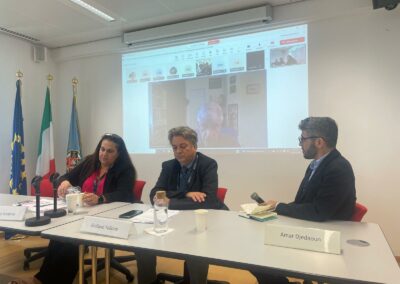Thematic Projects of the Sustainable Tourism Mission take center stage, showcasing innovative approaches and collaborative solutions for a greener Mediterranean tourism model.
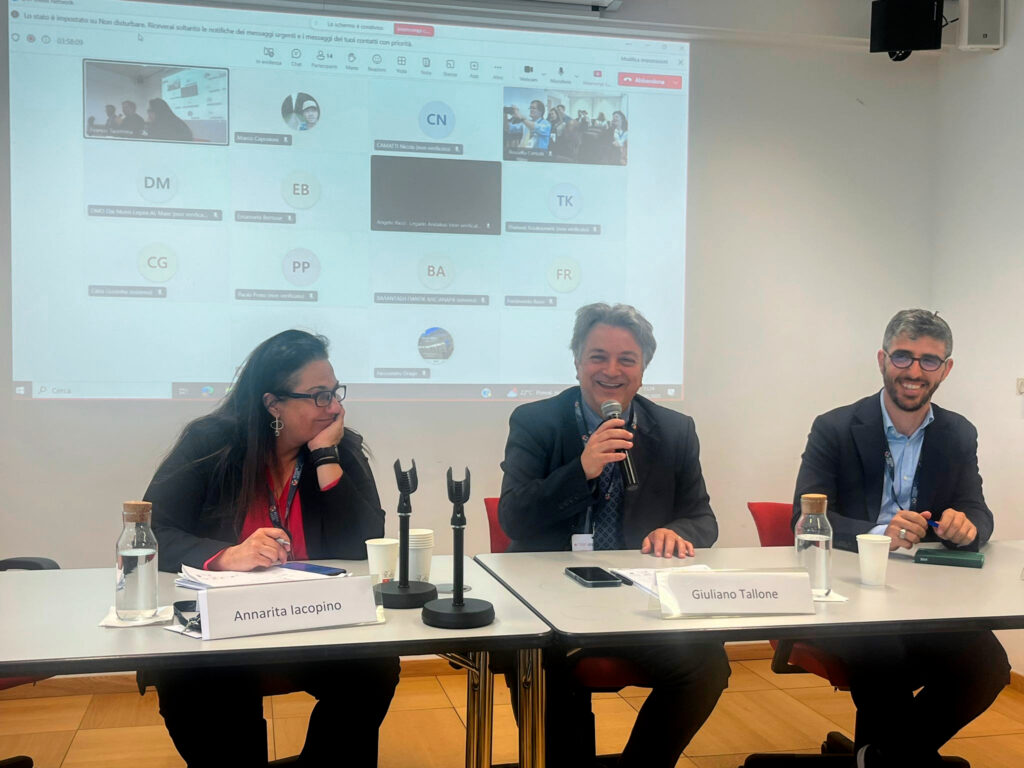
The Interreg Euro-MED Network of Sustainable Tourism Observatories (NSTO) held its second high-level meeting on 14 May at the headquarters of the Lazio Region in Brussels, bringing together policymakers, experts, and stakeholders from across the Mediterranean to deepen cooperation and promote data-driven governance for sustainable tourism.
Building on the outcomes of its first webinar, this hybrid session focused on enhancing institutional cooperation, improving data-sharing strategies, and fostering innovation in sustainable tourism practices. The event was hosted as part of the Sustainable Tourism Mission of the Interreg Euro-MED Programme, under the framework of Objective 6.6 of the European Commission for 2021–2027, which aims to support better cooperation governance.
The NSTO, coordinated by the Dialogue4Tourism (D4T) Project with the support from Community4Tourism, currently counts 40 institutions from former and current Interreg MED and Euro-MED Projects and Tourism Observatories across the Mediterranean. These members represent a diverse set of actors actively contributing to greener, more resilient tourism across the region.
The meeting featured contributions from several leading regional institutions and projects. The Lazio Region (Italy), acting as a core partner of Dialogue4Tourism Project, opened the session alongside the project officer of the Interreg Euro-MED Program attached to the Sustainable Tourism Mission -Axel Rodríguez Garrote- and representatives from El legado andalusí Andalusian Public Foundation (Regional Ministry of Culture and Sport of Andalusia, Spain, LP of D4T Project). Representatives from EPLO (Greece), ASCAME (Spain), GTI Foundation (Italy), Institute of Agriculture and Tourism of Poreč (Croatia), Region SUD (France) and Ministry of Transport and Public Works (Cyprus) also participated.
A central highlight was the presentation of the White Paper on Tourism and Climate Adaptation of Dialogue4Tourism Project, by Ioannis Mardikis from EPLO (Greece). The document outlines policy pathways for aligning tourism development with climate resilience goals in the Mediterranean.
The agenda included two major roundtable discussions. The first, titled “Data-Driven Decision-Making for Sustainable Tourism,” was moderated by Giuliano Tallone of Lazio Region and featured contributions from partners of TOURISMO, LIBECCIO, and Community4Tourism projects. Speakers discussed how observatories can strengthen tourism planning through integrated data systems and new technologies.
The second roundtable, “Integrating Sustainable Tourism into Policy,” was led by Annarita Iacopino and Valentina Castello of Universitá Europea di Roma. Experts shared best practices from PANORAMED (represented by Alen Matic from the Ministry of Regional Development and EU funds of the Republic of Croatia), AQUAMAN Project, and the Danube Strategy Point (EU Strategy for the Danube Region), addressing how local and regional case studies can inform national and transnational tourism policy.
The event also launched two Working Groups:
- Data-Driven Decision-Making for Sustainable Tourism
- Recommendations for Policy Integration of Sustainable Tourism Practices
These working groups will contribute to an Annex to the existing NSTO Memorandum of Understanding, strengthening the network’s shared vision and commitment to sustainability and cross-border collaboration.
A special interactive session followed, focusing on challenges and opportunities in integrating Interreg Euro-MED thematic projects into the NSTO. Panelists included project leaders from NT4CC and TO CARE MED Interreg Euro-MED Projects, and CPMR-IMC as coordinator of the Community4Tourism MED Cluster of Innovation and Technology Capacities. The Institute of Tourism of Zagreb showcased how regional observatories such as CROSTO in Croatia are leading by example.
The meeting concluded with remarks from Luigi Cabrini, Chair of the Global Sustainable Tourism Council (GSTC), who emphasized the strategic importance of Mediterranean observatories in aligning with global tourism frameworks. Other closing speakers included Amar Djedaoun (GTI Foundation), Valentina Castello (Universitá Europea di Roma), and Giuliano Tallone (Lazio Region).
The NSTO is now entering a new phase of collaboration, aiming to deliver a best practices report on observatories as tools for governance and planning in sustainable tourism. By connecting data, policy, and local action, the network reinforces its role as a driver for a greener tourism future across the Euro-Mediterranean region.

